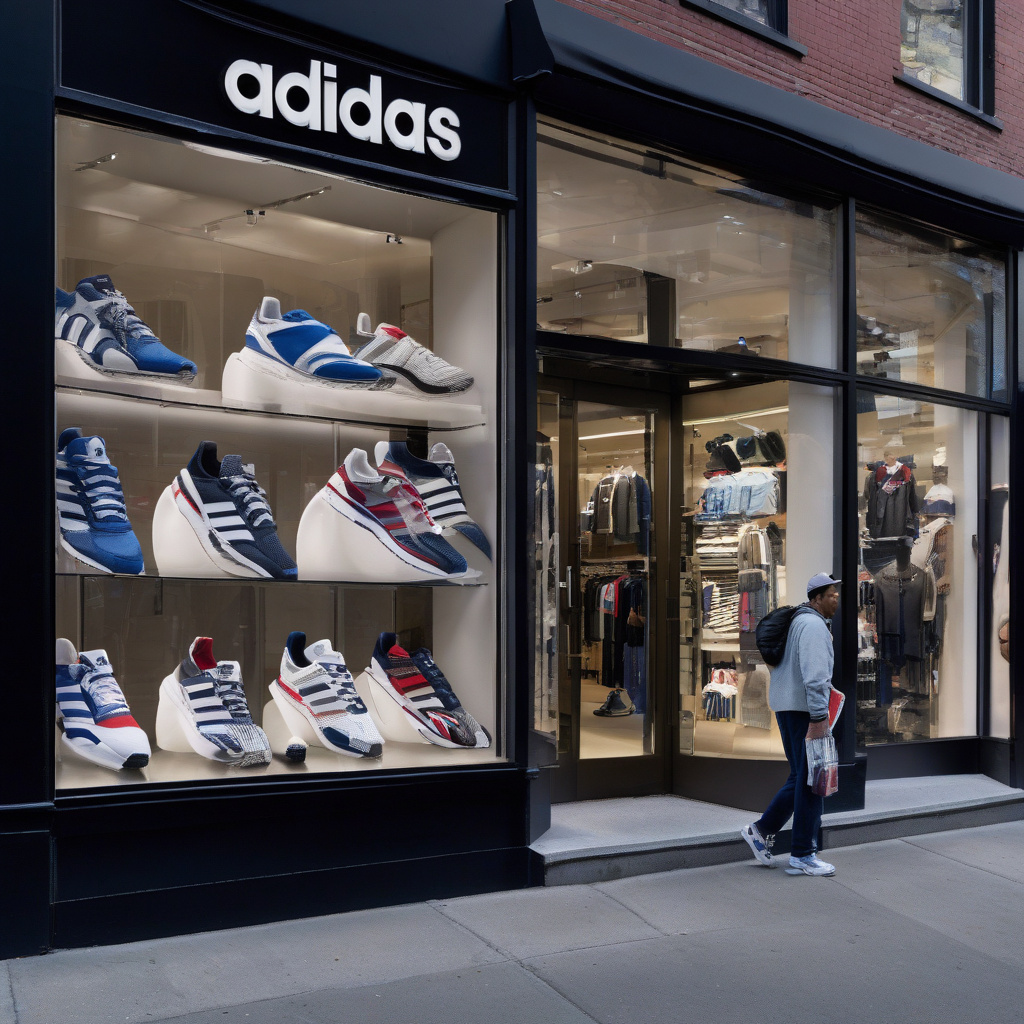Adidas Says Trump Tariffs ‘Put a Stop’ to Boost in Targets
German sportswear giant Adidas faced an unexpected hurdle despite a stellar performance in the first quarter of the year. Ordinarily, the company would have been celebrating and looking to raise its outlook for the year after surpassing its first-quarter profit expectations. However, the recent imposition of tariffs by the Trump administration has thrown a spanner in the works for Adidas, hindering its potential growth trajectory.
The first quarter of the year was looking exceptionally bright for Adidas. The company had been experiencing a significant boost in its profits, prompting optimism within the organization. Traditionally, such positive performance would have paved the way for an upward revision of annual targets, signaling a prosperous year ahead for the sportswear brand. Unfortunately, the optimism was short-lived as the announcement of new tariffs cast a shadow of uncertainty over Adidas’s future outlook.
The Trump administration’s decision to impose tariffs has sent shockwaves across industries, with companies like Adidas feeling the impact of the trade policies. The uncertainty and potential financial implications of these tariffs have forced Adidas to reassess its projections for the year. The sportswear giant now finds itself in a challenging position, navigating through the complexities of trade regulations and their repercussions on its business operations.
Adidas is not alone in facing the repercussions of the Trump tariffs. Many companies across various sectors have been forced to rethink their strategies and financial forecasts in light of the changing trade landscape. The uncertainty created by these tariffs has introduced a level of volatility and risk that businesses must now factor into their decision-making processes.
The timing of the tariffs couldn’t have been worse for Adidas, coming at a time when the company was poised for significant growth. The imposition of these trade barriers has effectively halted Adidas’s plans to capitalize on its first-quarter success and expand its market reach. The company now finds itself in a challenging position, having to navigate through turbulent economic waters while striving to maintain its competitive edge in the global sportswear market.
Despite the setbacks caused by the Trump tariffs, Adidas remains resilient and adaptable. The company is actively exploring alternative strategies to mitigate the impact of the tariffs and uphold its commitment to delivering value to its customers and stakeholders. By staying agile and responsive to the evolving trade dynamics, Adidas aims to weather the storm and emerge stronger on the other side.
In conclusion, while the Trump tariffs may have momentarily derailed Adidas’s momentum, the sportswear giant remains focused on its long-term goals and objectives. The company’s ability to navigate through challenges and adapt to changing circumstances underscores its resilience and commitment to success in a rapidly evolving global marketplace.
Adidas, like many other companies, is facing the realities of a shifting trade landscape, but its determination to overcome obstacles and thrive in the face of adversity sets it apart as a true leader in the industry.
Adidas, Trump tariffs, sportswear, trade policies, global market.












